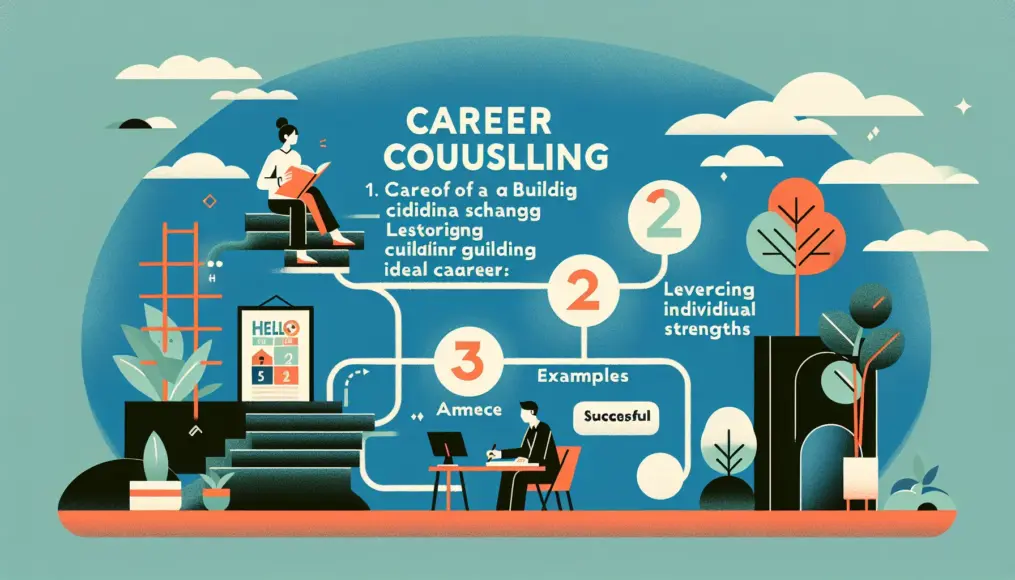When it comes to job interviews, etiquette plays a crucial role. Many candidates often focus on the content of their interview or their personal pitch, but in reality, being polite and respectful can significantly influence your chances of success. To leave a positive impression on the interviewer, it’s essential to practice basic manners diligently.
In this article, we’ll dive deep into the nuances of etiquette during interviews. We’ll cover everything from the importance of greetings and punctuality to tips on how to make a lasting impression from the interviewer’s perspective. We’ll also explore the historical context of etiquette and its relevance in today’s job market, offering strategies to refine your manners for interviews. By the end of this read, you’ll be better equipped to enhance your interview preparation.
- Fundamental etiquette for interviews and why it matters
- Tips for making the impression that interviewers are looking for
- The history of etiquette and its significance today
Basic Etiquette for Job Interviews
Job interviews can be both an exciting new beginning and a nerve-wracking experience. During this crucial moment, maintaining basic etiquette is essential. In fact, displaying good manners can leave a more positive impression on interviewers than self-promotion or skills alone. In this section, we’ll focus on the importance of greetings and the significance of punctuality during an interview.
Understanding how etiquette plays a role in the business world can help you approach your interview with confidence.
The Importance of Greetings
Greetings are a key factor in making a great first impression during an interview. By offering a cheerful greeting before the interview begins, you can communicate your enthusiasm and positive attitude to the interviewer. Additionally, a warm greeting can help ease the atmosphere, making communication flow more smoothly.
Moreover, greetings are a fundamental aspect of politeness and demonstrate respect for the other person. This simple act can serve as the first step in building a trusting relationship. So, remember to greet your interviewer with a bright voice and a firm handshake.
- Greetings shape first impressions
- They help facilitate smooth communication
- A basic action that shows respect for the other person
Why Punctuality Matters
Punctuality is a crucial aspect of interview etiquette. By arriving on time, you show respect for the interviewer and establish trust. Being late can create anxiety or discomfort for the interviewer, so it’s important to plan ahead and allow yourself enough time.
Additionally, interviewers often have tight schedules with multiple candidates, so failing to be punctual can affect not only your interview but also the others scheduled after you. Therefore, being mindful of your time from the preparation stage is a vital step toward success.
- Being on time shows respect
- Tardiness can create anxiety or discomfort
- The importance of considering the impact on other candidates
The Impact of Courtesy in Interviews
In an interview, courtesy goes beyond mere etiquette; it significantly influences the impression you make on your interviewer. By adhering to proper manners, you convey your personality and attitude toward work, leaving a positive impression. In this section, we will explore the importance of courtesy from the interviewer’s perspective and share practical tips for making a great impression.
Courtesy is the foundation of building relationships in the business world. Especially in an interview setting, it’s crucial to leave a lasting impression. Let’s delve into how practicing good manners can help you stand out and create a positive impact.
The Interviewer’s Perspective
Interviewers consider not only a candidate’s skills and experience but also their personality and communication abilities. Politeness is a key factor that reflects one’s character and attitude toward work. For instance, greeting appropriately and displaying good manners can showcase your seriousness and sense of responsibility.
Moreover, since interviewers interact with multiple candidates, courteous behavior tends to stick with them. Being mindful of your manners is essential for differentiating yourself from other candidates. By understanding the interviewer’s perspective and being conscious of your courtesy, you can leave a favorable impression.
- Interviewers prioritize candidates’ personalities
- Politeness highlights your seriousness
- Helps differentiate you from other candidates
Tips for Making a Good Impression
There are several practical tips for creating a positive impression. First and foremost, it’s essential to greet your interviewer properly. A cheerful “Hello” can go a long way in establishing a favorable atmosphere. Additionally, your posture and expressions during the interview matter significantly. Keep your back straight and maintain a smile to project confidence.
Furthermore, it’s important to express your enthusiasm not just through what you say but also through your courteous actions. For example, thanking your interviewer after the interview can effectively convey your appreciation. This simple act can enhance their impression of you.
If you’re keen on deepening your understanding of courtesy and impressions during interviews, it’s also beneficial to learn about the importance of a thank-you email after the interview. This article discusses why sending a thank-you email is crucial and provides detailed methods for doing so. If you’re interested, check out this article: “Is a Thank-You Email After an Interview Necessary? Business Etiquette Tips from Successful Individuals”.
- Use a cheerful greeting to make a good impression
- Pay attention to your posture and expressions
- Show gratitude with a thank-you message after the interview
A Philosophical Perspective on Etiquette
The concept of etiquette extends beyond mere manners or rules; it is deeply rooted in philosophical thought. Throughout history, etiquette has played a crucial role in facilitating human relationships and maintaining social harmony. In this section, we will explore the history of etiquette, its background, and its significance in modern society. By understanding how etiquette has evolved and how it impacts our lives, you can gain insights that will be valuable even in job interview settings.
Etiquette may take different forms depending on the culture and era, but at its core lies a commitment to valuing relationships between people. This awareness highlights that, even today, politeness remains an essential element of our interactions.
The History and Background of Etiquette
The history of etiquette dates back to ancient times. In many cultures, etiquette has served as a foundation for smooth interpersonal relationships and societal support. In Confucianism, both in ancient China and Japan, etiquette was regarded as part of morality and a key teaching for maintaining social harmony. From this background, etiquette is seen not merely as formal behavior but as something with profound meaning.
Moreover, etiquette acts as a means of showing respect for others and building trust. This mindset remains significant today, especially in business settings and during interviews. Adhering to etiquette is expected to foster better relationships with others.
- Etiquette: An important concept since ancient times
- A means of showing respect for others
- A foundation for building trust
The Importance of Etiquette in Modern Times
Even in contemporary society, etiquette continues to hold significant value. Particularly in interviews, politeness is a major factor that reflects your character and attitude toward work. Being mindful of etiquette can facilitate smoother communication with others and help you gain their trust.
In an age where social media and digital communication are prevalent, face-to-face etiquette has become even more crucial. While opportunities for in-person conversations have decreased, politeness stands out as a way to demonstrate reliability and sincerity. It’s essential to remember that etiquette remains a vital component in building relationships in today’s world.
Considering how important etiquette and manners are in interviews, there is a wealth of useful information available. As online interviews become more common, understanding interview etiquette can be the key to success. For more insights, check out this article, “Mastering Online Interview Etiquette: Tips for Success”, which offers detailed advice on remote interview considerations and effective self-presentation strategies.
- A reflection of character during interviews
- Facilitating smooth communication
- The importance of face-to-face etiquette in the digital age
How to Polish Your Etiquette for Interviews
When it comes to interviews, having good etiquette is crucial. Mastering proper etiquette not only leaves a positive impression on interviewers but also allows you to present yourself confidently. In this section, we’ll discuss two effective strategies for honing your etiquette before the big day: practicing mock interviews and how to receive feedback. By utilizing these methods, you’ll be better prepared for the actual interview.
Thorough preparation can help ease the nerves on interview day, allowing you to approach the situation in a relaxed manner. Let’s focus on developing practical skills while being mindful of etiquette.
Utilizing Mock Interviews
Mock interviews are an incredibly effective way to prepare for actual interviews. By asking friends or family to conduct mock interviews with you, you can simulate the pressure of a real interview while practicing your etiquette in a setting that closely resembles the actual experience. Paying attention to your greetings, appearance, and overall manners during these practice sessions will help you naturally develop your etiquette.
Moreover, mock interviews provide an opportunity to view your behavior objectively, making it easier to identify areas for improvement. Specifically, receiving direct feedback on your etiquette can guide you in making adjustments for your next interview.
- Conduct mock interviews with friends or family
- Practice while experiencing the pressure of an interview
- Assess your behavior from an objective standpoint
Receiving Feedback
After completing a mock interview, it’s essential to seek feedback. Listening to the opinions of friends and family can deepen your understanding of your etiquette and demeanor. By asking specifically what went well and what areas need improvement, you can formulate a more effective strategy for your next interview.
Additionally, feedback can lead to personal insights. You might discover aspects of your etiquette that you were previously unaware of or gain a new perspective on how you come across to interviewers. By being open to others’ opinions, you can prepare for a more successful interview experience.
- Identify areas for improvement through feedback
- Deepen your understanding of your etiquette and demeanor
- Embrace others’ insights to enhance your next interview
Summary
Etiquette during an interview is a crucial factor for success. By understanding and practicing basic manners, you can leave a positive impression on your interviewer. Simple actions like greeting properly, showing up on time, and using appropriate language are essential for building trust in the business world. Additionally, honing your skills through mock interviews and receiving constructive feedback can further enhance your etiquette.
Etiquette isn’t just a matter of formalities; it’s a fundamental element in building relationships. Understanding its significance from historical and philosophical perspectives highlights its importance in today’s business environment. By keeping these points in mind as you prepare for your next interview, you’ll be better positioned to achieve favorable results.
- The importance of greetings and punctuality in interviews
- Refining etiquette through mock interviews and feedback
- Etiquette as a foundational element of human relationships
Keep these tips in mind for your next interview. We wish you all the best, and feel free to share your thoughts or questions in the comments!



Comment